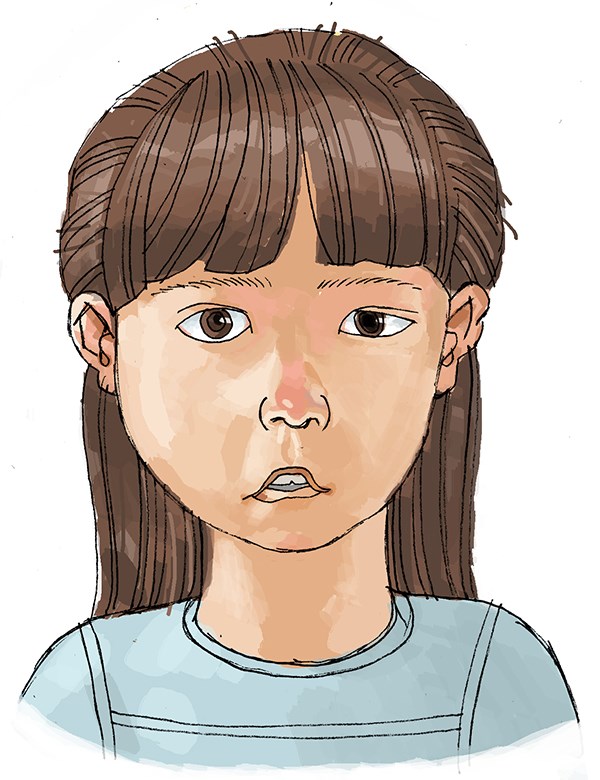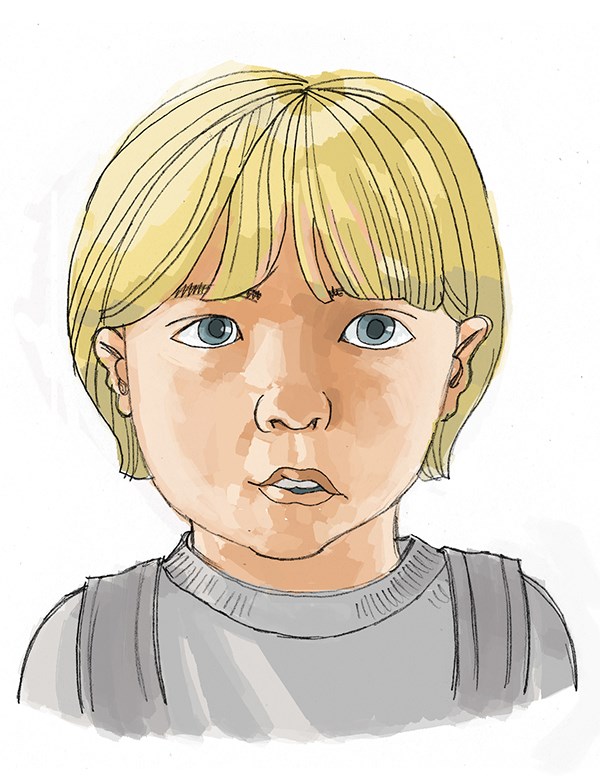Möbius syndrome
Codes
ICD-10: Q87.0W
ORPHA: 570
General information
Estimated occurrence
Very rare.Cause
Most cases are sporadic without a known etiology. The diagnosis is probably caused by an early fetal damage affecting the development of the cranial nerves.General symptoms
The primary symptoms are congenital facial palsy (affecting the facial muscles) and abducens palsy (affecting the possibility of lateral eye movements). These palsies usually occur on both sides. Other cranial nerves may be affected, generally the hypoglossal nerve (controls tongue mobility), the glossopharyngeal/vagus nerves (important for swallowing and speech) and/or the trigeminal nerve (controls the muscles involved in chewing and the sensation of the face and mouth). Skeletal anomalies may occur. Some individuals with Möbius syndrome have a neuropsychiatric disorder and intellectual impairment.Synonyms
Möbius Sequence. Moebius syndrome. Moebius sequence.Images
Characteristic facial features in Möbius syndrome:
Facial palsy, unilateral or bilateral. Strabismus (abducent palsy). Small lower jaw. Downturned corner/corners of the mouth. Inability to fully close the eye/eyes.


Orofacial/odontological symptoms
Facial palsy results in little or no facial expression. Many of these children have sucking, eating and speech difficulties owing to underdevelopment of the cranial nerves and craniofacial deformities including cleft palate and/or microglossia (underdeveloped tongue). There may be drooling problems. A post normal bite a small lower jaw and crowded teeth are all relatively common, as is the absence of some tooth buds. Studies have shown, that the saliva production may be reduced and some have a modified buffering capacity.
Advice on follow-up and treatment
- Early contact with dental services for intensified prophylactic care and oral hygiene information is essential.
- In cases of craniofacial deformities, a specialist team will be responsible for follow up and treatment.
- Regular check-ups of dental and jaw development. Orthodontist should be consulted when needed.
- Orofacial therapy and oral motor skill training should be considered.
- Speech, language and communication training are often justified.
- Feeding and swallowing difficulties are investigated and treated by a specialist team at the hospital or multidisciplinary treatment center.






